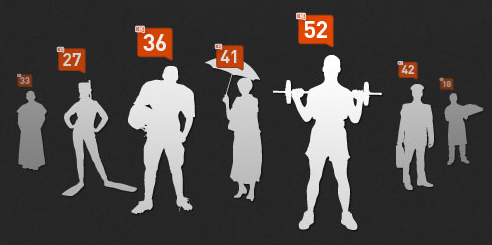 First and foremost, to those of you who have been checking this blog regularly over the course of the last few months, we want to say thank you. It’s been a goal of ours to provide resources that help small to mid-sized business owners, marketers and designers run their businesses as best as they can. If you think we’ve been successful there, do us a favor and let us know. Conversely, if there are things we can improve on, feel free to drop us a line. We’d like to hear what you have to say.
First and foremost, to those of you who have been checking this blog regularly over the course of the last few months, we want to say thank you. It’s been a goal of ours to provide resources that help small to mid-sized business owners, marketers and designers run their businesses as best as they can. If you think we’ve been successful there, do us a favor and let us know. Conversely, if there are things we can improve on, feel free to drop us a line. We’d like to hear what you have to say.
Last spring, Sam Fiorella interviewed at a marketing agency in Toronto. With 15 years of experience consulting for major brands like AOL, Ford and Kraft, Fiorella was confident in his qualifications. But during the interview, he was caught by surprise when he was asked about his Klout score. Fiorella initially hesitated before eventually confessing that he didn’t know what a Klout score was. The person conducting the interview pulled up the webpage for the service, that purports to measure users’ online influence on a scale from 1 to 100 based on “the ability to drive action,” and turned the monitor so that Fiorella could see the result for himself. His score was a modest 34. While the average score is at or around 20, the company ultimately ended up hiring someone with a score of 67.
Klout is an algorithmic system that purports itself as the “standard for influence.” It’s calculated using variables that includes follower count, frequency of updates, the Klout scores of your friends and followers as well as the number of likes and shares your updates receive. And if you have a public Twitter account, you’ve been assigned a Klout score. That is unless you’ve opted out on the website.
Before you start worrying, Klout might not be the accurate representation it’s hyped up to be, and it can be manipulated. To put the scoring distribution into perspective, Warren Buffett has a 34. President Obama has a 93, and Justin Bieber is the one person with the full-score of 100. By Klout’s measure, the Oracle from Omaha and the leader of the free world each have less influence than the 18-year-old pop star, which can’t be right.
But maybe more importantly, outside of marketers, most people probably don’t know what Klout is. And for those who do, many of them just don’t care. When it comes down to it, if a prospective employer is reluctant or unwilling to hire you because of your score, you probably don’t want to work there anyway.
So if it’s not everything and making major decisions solely on it is silly, why mention it at all?
Because we all benefit from ranking signals. PageRank helps us find better data by tallying inbound hyperlinks that act as votes of confidence. AuthorRank carries attributes based on trust and authority. Trending subjects reveal the most talked about topics in real time. None of these social graphs, Klout included, is perfect, but they do help us make sense out of all the noise around us.
Additionally, businesses can use Klout Perks to measure their social media success. Klout and its partners offer rewards, better known as perks, for third party products and services based on score, expertise, location, etc. This most often takes shape in gift cards and free samples. Brands like Virgin America, Audi, Red Bull, along with 3,000 some odd applications and partners, use the program to prioritize, segment and engage influencers who will subsequently create thousands of pieces of user-generated content and millions of impressions for a brand’s new product, initiative or campaign. They do so conceptually at least.
So should you use Klout? It’s really up to you. Everyone uses and leverages social media differently. Some have a larger reach than others, and each has varying degrees of authority on disparate topics. If you do decide to, remember to take it with a grain of salt.
Beyond the metrics, the goal of building, or optimizing, a web presence should be to complement existing marketing and sales efforts. James Howe may have summarized it best when he said, “Popularity may mean someone has influence, but you definitely don’t need to be popular to have influence. Connecting with one person or a small group can change a neighborhood, a community or go a long way to make our world a better place to live.”
If you are still totally and unequivocally against it, you should check out Klouchebag.
Photo Credit: Klout, Rework Engine
Thanks for including my post in your look at Klout and influence!
Klout may have some relevance if you’re seeking social media or digital marketing experts–maybe–but it falls apart when it wanders farther afield. I’m convinced that’s because it doesn’t and can’t measure activity offline which is the real test of influence.